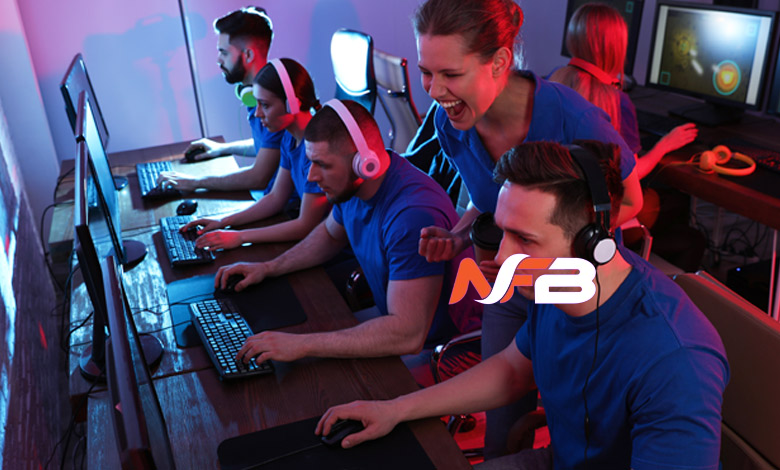I believe that esports has long ceased to be just entertainment and has turned into a serious direction for young people. Today, schools and universities are starting to open specialized programs where games are no longer seen as a waste of time, but as a tool for development. This applies not only to competitions, but also to learning teamwork, analytics, and even psychology. I see this as a step forward: education is beginning to move away from dividing the world into “games” and “serious activities.” And it is precisely this symbiosis that can give rise to a new generation of specialists who will understand both the market and the industry from the inside.
School clubs and first steps
Many schools are already introducing clubs where students play popular disciplines such as League of Legends or CS2. Often these clubs are created with the support of IT teachers or coaches who understand the value of esports and can explain to the administration that it is not just “games,” but a real field of development. For teenagers, participating in tournaments becomes the equivalent of traditional sports sections — like basketball or football, only in digital form.
I see this as an important step: teenagers now have a clear and legitimate path into esports right at the school level. They can not only play but also compete with other teams, representing their school at regional championships. For structure and transparency, schools increasingly rely on statistics and comparison tools like cs ranking, integrating them into handouts and reports. In the U.S., for example, there is the High School Esports League, where students compete in Fortnite and Rocket League. In South Korea, school clubs in StarCraft and League of Legends became the foundation for future professional players.
At the same time, there is a practical benefit: students learn to analyze strategy, distribute roles, and work as a team just like in traditional sports. Training helps build discipline, develop communication skills, and learn how to cope with losses. This gives the whole process a professional touch and allows school students to feel that their passion truly has value.
University programs
Universities have gone even further — they offer full courses and even scholarships for gamers. In the U.S., students receive grants for achievements in Overwatch or Rocket League, while in the U.K., research centers dedicated to the study of the gaming industry are being created. At some universities, entire faculties are formed where esports is studied from different angles: from management and marketing to player psychology and esports law.
In my view, this is logical: since esports attracts millions of viewers and is comparable in scale to traditional sporting events, the educational field must take this reality into account. University teams become official representatives at tournaments and bring prestige to their institutions no less than football or basketball squads. A vivid example is the University of California, Irvine, which created one of the first academic programs in esports in the U.S.: it has its own arena, coaches, and the opportunity to earn scholarships for success in League of Legends.
In Europe, Staffordshire University can be cited as an example, as it was one of the first to launch a bachelor’s program in esports. Students there study not only game disciplines but also the basics of broadcasting, team management, and event organization. Such programs prepare graduates for real careers in the industry: some become players, others analysts or managers, while others move into media and streaming.
Thus, university initiatives do not just give students the chance to “play,” but create a systematic approach to esports, where education goes hand in hand with practice and career prospects.
Connection to future careers
It is also important that such programs are not limited to playing games. For example, students can study game design, sports management, or the psychology of esports athletes. At some universities, the curriculum includes courses on event marketing, working with sponsors, the legal aspects of contracts, and even esports medicine, which examines strain on eyesight and the nervous system. This means that education is preparing specialists not only for the stage but for the entire ecosystem.
A career is opening up not only for players but also for analysts, coaches, commentators, or streamers who become the face of a brand. Some students find their place in production — organizing tournaments, working on match coverage, and making broadcasts more professional. I’ve seen examples of graduates from such programs joining major organizations like Fnatic or Cloud9, taking positions in marketing or management departments.
I find it telling that even in Asian countries, universities are investing in the training of specialists for League of Legends or Valorant, where not only in-game skills but also an understanding of the market are valued. In South Korea, for instance, educational institutions cooperate with well-known esports clubs so that students can intern with real teams. And in China, a whole direction is developing around game development and commercialization, where students study how a gaming project can be turned into a successful business.
International experience
In South Korea, school tournaments in StarCraft were already the norm twenty years ago, and it was precisely this foundation that produced world-class champions still associated with the golden age of esports. There, esports is so deeply integrated into culture that the government supports the infrastructure: academies exist where children learn to play at a professional level, and universities cooperate with major organizations like T1 or Gen.G.
Now a similar model is beginning to take shape in Europe. In Germany, university leagues in FIFA and League of Legends are actively developing, where students from different institutions compete against each other, and the best get the opportunity to participate in international championships. In France, programs in Counter-Strike are being supported, and some universities even establish their own “esports departments” to prepare students not only for competitions but also for careers in the industry.
It is interesting that Scandinavian countries are also joining this trend. In Sweden and Denmark, esports is perceived as part of the educational process: schoolchildren can choose it as an elective subject, while universities provide grants for talented players in CS2 and Dota 2. In the U.S., the movement is also gaining momentum: more than 200 colleges already have their own teams, and disciplines like Overwatch or Rocket League are treated on par with traditional sports.
Conclusion
For me, it is obvious that games are becoming part of the educational process. They teach strategic thinking, discipline, and communication just like traditional sports. When schools and universities open their doors to gamers, they provide an opportunity not just to play, but to build a future in a rapidly growing industry. And the sooner this is understood in different countries, the greater the chance to prepare a new generation of specialists who can bring esports and education together into a full-fledged system.














Leave a Reply